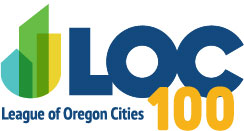LOC News
FCC Establishes Rules for New Low-Income Emergency Broadband Benefit
On February 26, the Federal Communications Commission (FCC) announced through a Report and Order the rules for a new Emergency Broadband Benefit (EBB), funded for a one-time amount of $3.2 billion, which will be available until expended or until six months after the COVID-19 emergency declaration expires. The EBB provides eligible low-income households with a monthly $50 discount for broadband service from participating providers, as well as a one-time $100 discount on an internet-enabled device. This includes any household: with a resident who currently receives the federal Lifeline telephone benefit; approved for the free or reduced-price school program; that has experienced a substantial job or income loss since February 29, 2020; or has received a Pell grant in the current academic year.
The National League of Cities and numerous local governments participated in the accelerated comment period in January and early February, and the FCC has recognized that local governments are a critical partner for the EBB's success by citing these comments throughout the Report and Order.
Cities will have a key role to play in the implementation of this emergency program. While only cities with municipal broadband utilities will be eligible to participate directly as providers, local leaders can work with local internet service providers, community organizations, and local and regional government agencies to make sure that all potential participants are aware and able to take advantage of the program.
For the latest updates from the FCC, including an informational listserv, past and upcoming educational events, and documentation, visit fcc.gov/broadbandbenefit.
Contact: Jenna Jones, Legislative Analyst – jjones@orcities.org
Last Updated 3/5/21

